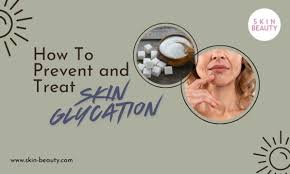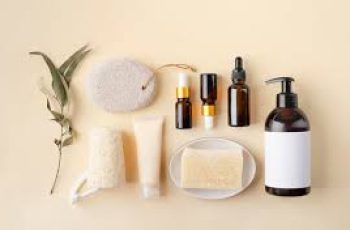
Glycation is a natural process that happens within our bodies. It involves sugar molecules, like glucose, attaching to proteins. Collagen and elastin are key skin proteins affected.
This binding creates harmful compounds called Advanced Glycation End Products, or AGEs.
This complex biochemical reaction has major implications for skin aging. Over time, AGEs build up in the skin. This leads to visible signs of aging.
These signs include wrinkles, loss of elasticity, and a weaker skin structure. The skin takes on an overall aged appearance. This article explores the science behind glycation.
We will examine its impact on skin health. We’ll also discuss strategies to prevent or manage its effects.
### What Exactly Is Glycation?
Glycation is a unique type of chemical reaction. It is a non-enzymatic process. This means it occurs without the help of enzymes. Sugars, like glucose or fructose, bind to proteins or lipids.
This process is quite similar to the Maillard reaction. That reaction causes food to brown when cooked or toasted. Think of the rich color and flavor on toasted bread.
This browning reaction is essentially glycation happening in food.
In the human body, this reaction occurs naturally over time. When sugars attach to skin proteins such as collagen and elastin, AGEs are formed. These compounds can accumulate over many years.
This accumulation damages proteins. It contributes significantly to the breakdown of the skin’s structural integrity.
### The Role of Glycation in Skin Aging
Glycation profoundly impacts two of the most vital proteins in our skin. These are collagen and elastin.
#### Impact on Collagen and Elastin
Collagen is the most abundant structural protein in the skin. It provides strength and firmness. Elastin, on the other hand, gives skin its ability to bounce back.
It allows skin to return to its original shape after stretching. Glycation negatively affects both of these crucial proteins.
**1. Collagen Glycation**
When sugar molecules bind to collagen, they cause cross-linking. This cross-linking occurs between individual collagen fibers. This process stiffens the collagen matrix. The collagen becomes less flexible.
It loses its ability to remodel correctly.
The outcome is weakened skin. This skin is more prone to developing wrinkles. It also becomes more susceptible to sagging. A loss of firmness is another common result.
Over time, these accumulated crosslinks impair collagen’s proper function. This further contributes to a noticeable loss of skin elasticity.
**2. Elastin Glycation**
Elastin fibers are equally vulnerable to glycation’s damaging effects. Sugar molecules attach directly to elastin. This makes the fibers more resistant to breakdown.
The enzyme responsible for degrading elastin is called elastase. Glycated elastin resists elastase’s actions.
As a result, abnormal elastotic material builds up in the skin. This leads to a significant loss of skin’s elasticity. The skin loses its ability to stretch and then return to its original form.
This process causes the skin to appear stiffer. It also makes the skin look less youthful.
#### Other Detrimental Effects of Glycation on Skin
Glycation does more than just affect collagen and elastin. It also triggers the production of free radicals. These are also known as reactive oxygen species (ROS).
These free radicals further damage collagen, elastin, and other skin cells.
This oxidative stress significantly accelerates the aging process. It damages essential cellular structures. It also promotes inflammation within the skin.
All of these factors contribute to a less healthy and youthful complexion.
### Recognizable Signs of Glycation in Skin
Several visible signs can indicate the impact of glycation on your skin.
* **Wrinkles and fine lines:** Stiff, cross-linked collagen fibers lose their elasticity. They cannot stretch and regenerate as they should.
This leads to wrinkles forming more easily and becoming more pronounced.
* **Sagging skin:** The reduced flexibility of collagen and elastin fibers causes the skin to droop. This is particularly noticeable in areas like the under-eyes, jawline, and neck.
* **Loss of elasticity:** The skin becomes less resilient. It loses its ability to “snap back” after being stretched. This often results in a more tired and aged appearance.
* **Uneven skin tone:** Glycation can also contribute to the development of age spots. It may also cause other forms of uneven pigmentation.
This occurs because glycation impacts the structure and function of various skin cells.
### Effective Strategies to Prevent Glycation in Skin
While glycation is an unavoidable part of the natural aging process, you can take steps. These actions help minimize its impact on your skin. Prevention strategies mainly focus on two key areas.
They aim to reduce the accumulation of AGEs. They also work to limit the oxidative stress that intensifies skin aging.
**1. Control Blood Sugar Levels**
Elevated blood sugar is the primary driver of glycation. By maintaining stable blood sugar levels, you can significantly reduce the amount of glucose available for glycation.
To achieve this, consider these approaches:
* **Low-glycemic diet:** Choose foods that cause a slow and gradual rise in blood sugar. Examples include whole grains, various vegetables, and lean proteins. These choices help maintain better glucose control.
* **Regular exercise:** Consistent physical activity greatly improves insulin sensitivity. It also helps regulate blood sugar effectively.
* **Medications:** Certain medications can help manage blood sugar. Drugs like metformin, semaglutide (found in Ozempic and Wegovy), and tirzepatide (Mounjaro) can improve glycemic regulation.
**2. Utilize Potent Antioxidants**
Antioxidants are crucial for mitigating oxidative stress. This stress is caused by free radicals and reactive oxygen species (ROS). Oxidative stress can significantly exacerbate the glycation process. Key antioxidants vital for protecting your skin include:
* **Vitamin C:** This is a potent antioxidant. It helps neutralize free radicals. It also effectively reduces oxidative stress in the skin.
* **Vitamin E:** Another powerful antioxidant. It helps protect the skin from various forms of oxidative damage.
* **Polyphenols:** These compounds are found in ingredients like green tea. They can help protect the skin from both glycation and oxidative stress.
**3. Limit UV Exposure**
Ultraviolet (UV) radiation from the sun can accelerate glycation. It does this by increasing the production of free radicals. These free radicals interact negatively with glycated proteins.
UV exposure can also directly cause crosslinking. This occurs between proteins and sugars, leading to even more AGEs. To protect your skin effectively:
* **Use broad-spectrum sunscreen daily:** This is essential for preventing UV-induced damage. Choose a sunscreen that protects against both UVA and UVB rays.
* **Limit sun exposure:** Try to avoid prolonged periods in the sun. This is especially important during peak hours when UV rays are strongest.
**4. Incorporate Anti-Glycation Ingredients**
While no topical product can completely “undo” existing glycation, certain skincare ingredients can help. They may reduce the formation of new AGEs. They can also support the skin’s natural repair processes.
Some effective active ingredients include:
* **Retinoids:** These ingredients, like retinol and tretinoin, promote collagen turnover. They also help in the removal of abnormal collagen fibers damaged by glycation.
* **Alpha Hydroxy Acids (AHAs):** These exfoliants help slough off dead skin cells. They can also assist in eliminating damaged proteins from the skin’s surface.
* **Aminoguanidine and Carnosine:** Both of these compounds have shown promising anti-glycation properties. They potentially reduce the formation of AGEs.
**5. Enhance Skin’s Autophagy Process**
Autophagy is the body’s natural clean-up process. It involves breaking down and recycling damaged proteins. Skincare products and practices that boost autophagy may help the skin naturally remove damaged proteins. This includes glycated collagen and elastin. While not all skincare products directly enhance autophagy, some are formulated to support skin regeneration. For example, products like **Alastin Regenerating Skin Nectar** are designed to stimulate skin regeneration. They may help mitigate some of the effects of glycation over time.
### Top Skincare Products for Addressing Glycation
No topical product can entirely reverse existing glycation damage. However, certain skincare products can help. They can reduce the visible appearance of AGEs. They can also improve overall skin health.
Some popular and effective choices include:
* **1. Alastin Regenerating Skin Nectar:** This product is specifically formulated to support the skin’s natural repair mechanisms. It aims to stimulate collagen turnover.
It also addresses damage from environmental stressors, including glycation. By enhancing the skin’s natural regenerative abilities, it can help diminish the visible signs of aging caused by glycation.
* **2. Retinoids (Retinol, Tretinoin):** Topical retinoids are highly effective. They increase cell turnover. They also promote the remodeling of damaged collagen. This leads to smoother, firmer skin. Retinoids are often included in anti-aging products. This is due to their proven ability to combat the visible effects of glycation.
* **3. Vitamin C Serums:** Vitamin C is a powerful antioxidant. It protects the skin from oxidative damage. It may also help reduce the formation of new AGEs.
It is an essential component of any anti-aging regimen that aims to address glycation.
* **4. Peptide-Based Products:** Peptides play a crucial role in supporting collagen production. They can help the skin rebuild itself after damage.
Some peptides, such as copper peptides, have been shown to encourage skin healing. They also improve skin elasticity. This helps to counteract some of the negative effects of glycation.
### Conclusion
Glycation significantly contributes to skin aging. It leads to the breakdown of collagen and elastin. This results in wrinkles, sagging, and a loss of skin elasticity.
While glycation cannot be completely reversed, many strategies can help prevent or lessen its impact.
Maintaining stable blood sugar levels is paramount. Using potent antioxidants offers protection. Shielding your skin from UV radiation is also vital.
Incorporating specific skincare ingredients like retinoids and peptides can further aid. By adopting a multi-faceted approach to glycation prevention, you can protect your skin.
This helps safeguard it from the detrimental effects of this natural, yet aging, process.


